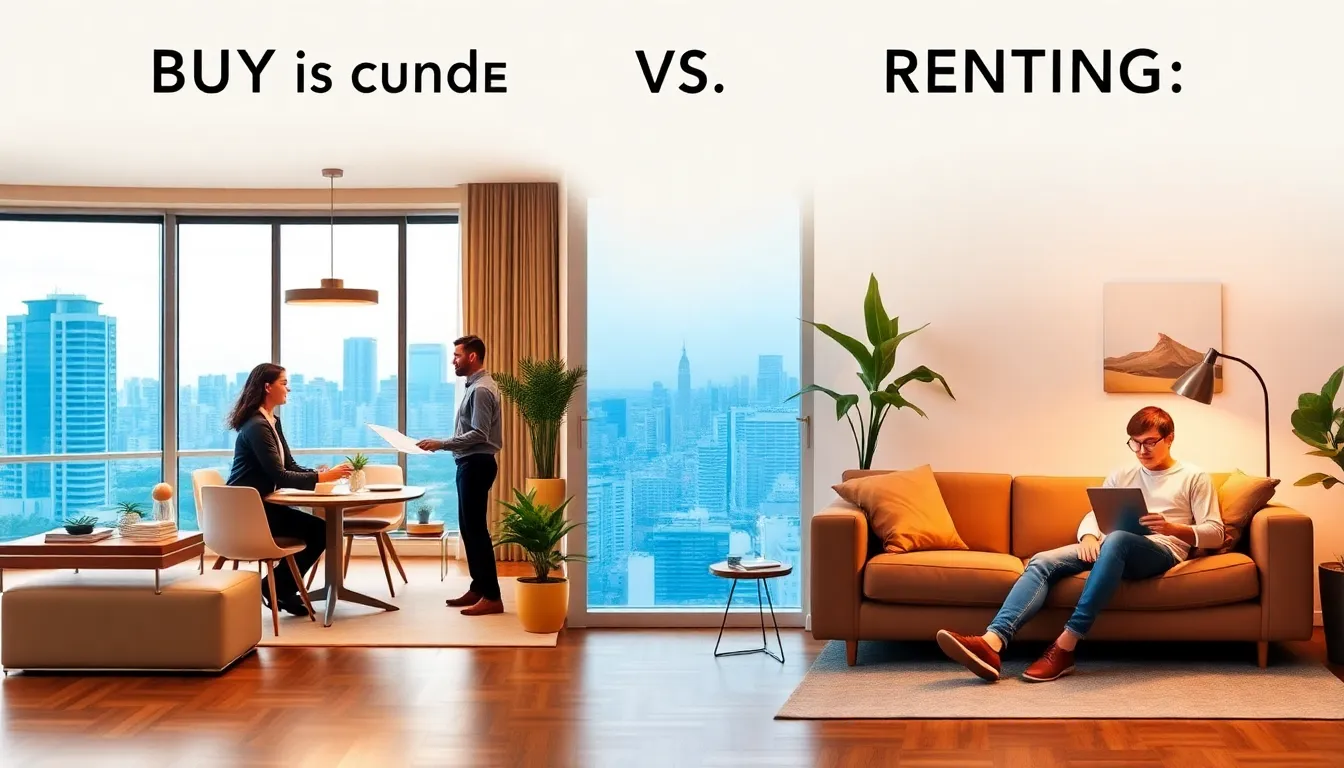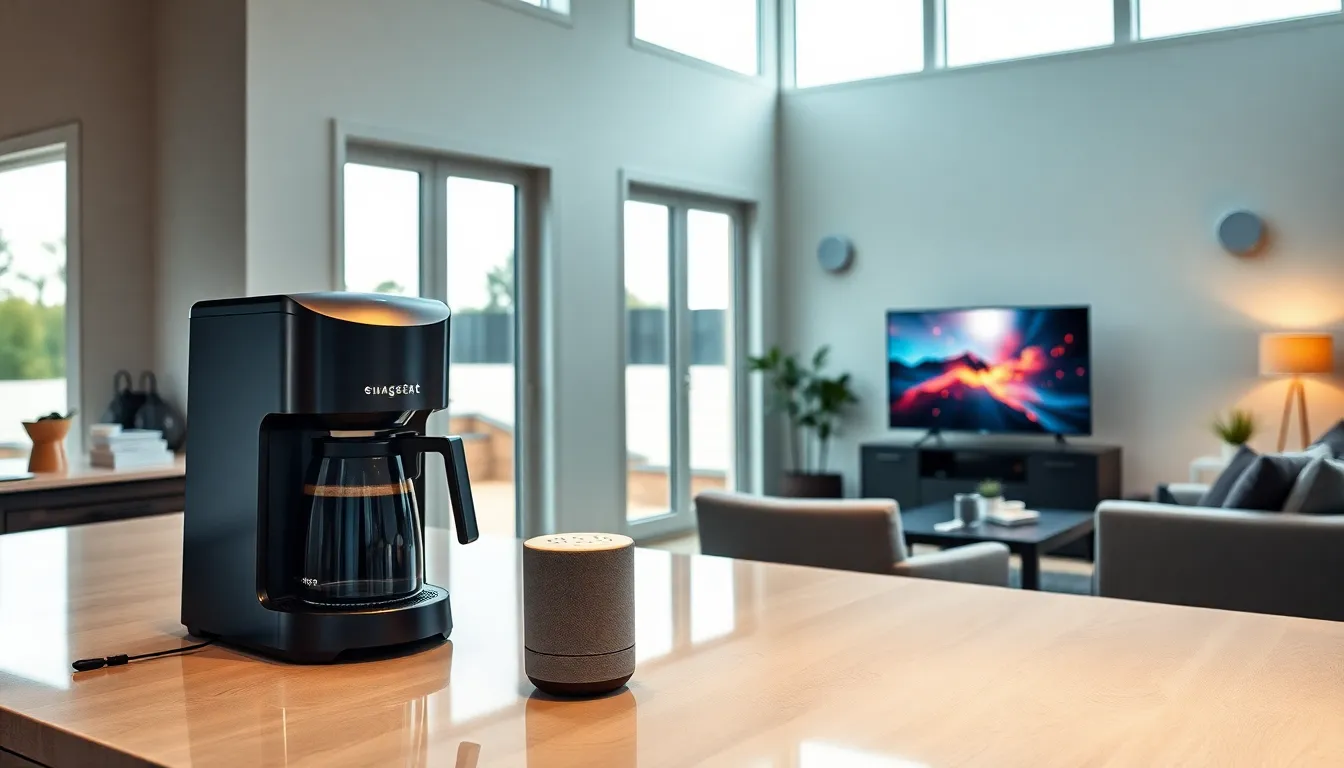When it comes to living in the Big Apple, the age-old debate of buying versus renting creates more drama than an episode of your favorite reality TV show. Owning a slice of NYC can feel like a dream come true, while renting keeps the door open for spontaneity and freedom. But, deciding which route to take requires juggling numbers and lifestyle aspirations. Buckle up. It’s time to navigate the concrete jungle of real estate and explore the ins and outs of buying versus renting in NYC.
Table of Contents
ToggleUnderstanding the NYC Real Estate Market

New York City’s real estate market is notorious for its fluctuations and complexities, making it a unique beast. Demand often outstrips supply, which can lead to elevated prices both for those looking to buy and those hoping to rent. In this competitive landscape, knowing how to position oneself is vital. Historically, neighborhoods such as Manhattan, Brooklyn, and Queens have seen a surge in property prices, while up-and-coming areas offer thrilling prospects for first-time buyers and renters alike.
The sheer variety in property types, from luxury apartments to more modest studios, means that choices abound. But, potential buyers must keep an eye on the market trends. A sudden spike in interest rates can alter the landscape dramatically, impacting both buying power and rental rates. Understanding these dynamics is crucial in determining the best path for each individual or family.
Pros and Cons of Buying a Home in NYC
Buying a home in NYC can be a double-edged sword. On one hand, there’s the undeniable joy of having a place to call one’s own, not to mention the satisfaction of building equity over time. Potential appreciation means that properties often increase in value, especially in desirable neighborhoods.
But, investing in real estate in this city does come with its downsides. Upfront costs can be staggering, with hefty down payments and closing costs lurking around every corner. Maintenance and property taxes can add to the financial burden. Besides, selling a property is rarely simple, especially in a volatile market. Homeowners may find themselves tied down, particularly if job changes or lifestyle shifts are merited.
Eventually, weighing the initial excitement of owning property against the long-term financial implications is paramount.
Pros and Cons of Renting in NYC
Renting in NYC isn’t just a temporary solution: it can also offer significant perks. First off, flexibility reigns supreme. Renters have the freedom to explore different neighborhoods without committing to a long-term mortgage. It’s a fantastic way to find the perfect spot that aligns with lifestyle preferences.
Also, while maintenance costs can create large financial pits for homeowners, renters generally enjoy more maintenance-free living. Landlords typically shoulder these responsibilities, which allows renters to allocate funds towards experiences or savings. But, renting also has its setbacks: a possibility of rent increases with each lease renewal and no equity building over time. Eventually, it’s a balancing act between flexibility and financial investment.
Financial Considerations
When considering the financial angle, potential buyers and renters should both examine their budgets meticulously. Knowledge of upfront costs is essential, as buyers need to prepare for down payments typically ranging from 10% to 20%. Also, ongoing monthly expenses can include property taxes and homeowners insurance, which can be hefty in NYC.
On the other side, renters often deal with security deposits, potential broker fees, and monthly rent. Analyzing current market prices reveals that while renting may appear cheaper in the short term, over years, the total expenditure can begin to rival that of homeownership. Hence, weighing the immediate versus long-term financial impact is crucial in the decision-making process.
Thinking about other investment options is equally important: some individuals may prefer investing their funds elsewhere rather than tying them down in real estate.
Lifestyle Factors to Consider
Lifestyle choices play a pivotal role in the buying vs. renting debate. For instance, a buyer may prioritize stability and community, wanting to settle into a neighborhood. This sense of belonging can lead to deeper connections and greater personal investment in the area.
Conversely, a renter may thrive on flexibility, allowing for spontaneous adventures and changes. This lifestyle allows individuals to pursue career opportunities that may require relocation without the burden of unloading a property. Eventually, understanding one’s lifestyle preferences can guide this significant decision.
Long-Term Investment Potential
Real estate in NYC is often considered a solid long-term investment, given the city’s historical resilience and growth trends. Owning a property can build wealth through appreciation over time, providing an asset that may outlive its owner.
But, renting offers flexibility and lower financial risk, particularly if the market fluctuates. Renters can adapt more quickly to changing financial landscapes or personal situations. While the allure of property investment shines brightly, individuals must recognize that it carries both potential rewards and risks.






